Jeondeungsa Temple on
Ganghwa Island
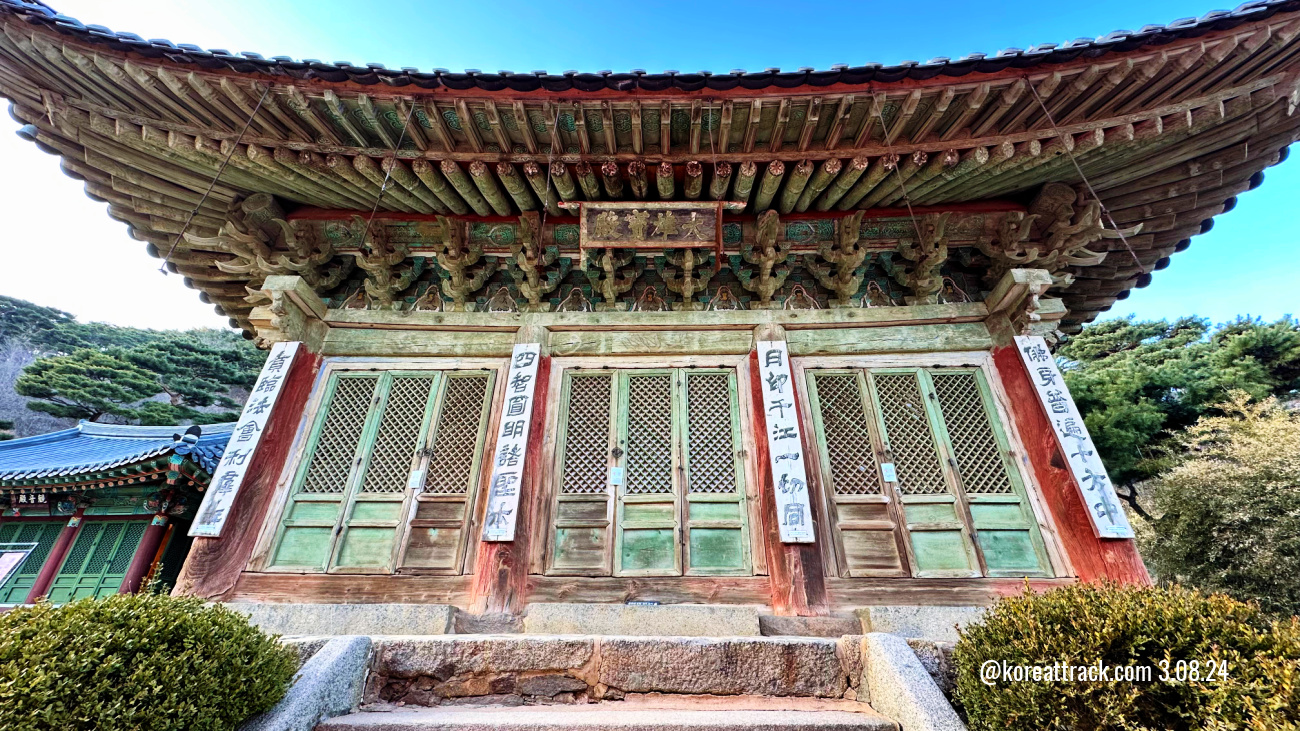 Jeondeungsa Temple on Ganghwa Island - Daeungbojeon Main Dharma Hall
Jeondeungsa Temple on Ganghwa Island - Daeungbojeon Main Dharma HallJeondeungsa Temple on Ganghwa Island
After enjoying a delicious lunch at home, I embarked on an exciting adventure to explore Ganghwado Island in Gyeonggi Province.
My itinerary included two must-see attractions - the renowned dolmen and its museum, as well as the ancient Jeondeungsa temple. Despite some initial apprehension about navigating the island's public transportation system, I successfully made my way to my destinations.
If you're interested, I'd love to share some details about my memorable experience and fascinating insights about the temple...
 Jeondeungsa Temple - Triad Buddhas inside Daeungbojeon (Main Dharma Hall)
Jeondeungsa Temple - Triad Buddhas inside Daeungbojeon (Main Dharma Hall)Jeondeungsa, a serene Buddhist temple, is nestled on the picturesque Ganghwa Island in Incheon, South Korea.
It boasts a rich historical significance, being the oldest surviving Buddhist temple in the entire Korean peninsula, established during the Goguryeo period in 381.
The temple's architecture, adorned with intricate carvings and vibrant colors, is a testament to the exquisite craftsmanship of ancient Korea.
Surrounded by lush greenery and tranquil landscape, Jeondeungsa is a must-visit destination for anyone seeking spiritual solace and cultural enrichment.
History & Cultural Background
 I did not expect to see this wall (fortress) gate while approaching Jeondeungsa Temple on Ganghwa Island.
I did not expect to see this wall (fortress) gate while approaching Jeondeungsa Temple on Ganghwa Island.Jeondeungsa is a famous Buddhist temple on the Korean peninsula. Its glorious history dates back to the Goguryeo period, and it was established in 381 under the name of Jinjongsa.
Over the years, Jeondeungsa has become a significant cultural and religious site, attracting visitors from all over the world. Its rich history and stunning architecture make it a must-visit destination for those interested in Korean culture and Buddhism.
It was built near Samnangseong Castle, a site steeped in mythical significance as the birthplace of Dangun, the legendary founder of Korea.
Over time, the temple gained popularity and was renamed Jeondeungsa in honor of a precious jade lantern donated by the Queen of King Chungyeol.
Today, Jeondeungsa remains a significant cultural and religious landmark, attracting visitors from across the globe who admire its stunning architecture, serene surroundings, and historical significance.
Main Sanctuary and Historical Significance
 Bell pavilion (right) and the pavilion gate to the main Dharma Hall (Daeungbojeon)
Bell pavilion (right) and the pavilion gate to the main Dharma Hall (Daeungbojeon) Jeondeungsa Temple - Pavilion infront of Daeungbojeon (Main Dharma Hall)
Jeondeungsa Temple - Pavilion infront of Daeungbojeon (Main Dharma Hall)The majestic sanctuary building, known as Treasure No. 178, stands proudly in front of the temple precinct, just below the magnificent entrance gate of Daejoru Tower.
Inside this sanctuary, one can delve into the rich history of Buddhism through the Beobhwagyeong scriptures. These precious scriptures were brought to Jeondeungsa from the neighboring Jeongsusa Temple in 1544 and have been cherished here ever since.
Apart from the scriptures, the sanctuary also houses a bronze water container donated by the Queen of King Chungyeol and a jade lantern. These artifacts add to the already impressive collection of treasures found at Jeondeungsa.
Myeongbojeon
 Myeongbojeon (Underworld Gods & Sages Hall)
Myeongbojeon (Underworld Gods & Sages Hall)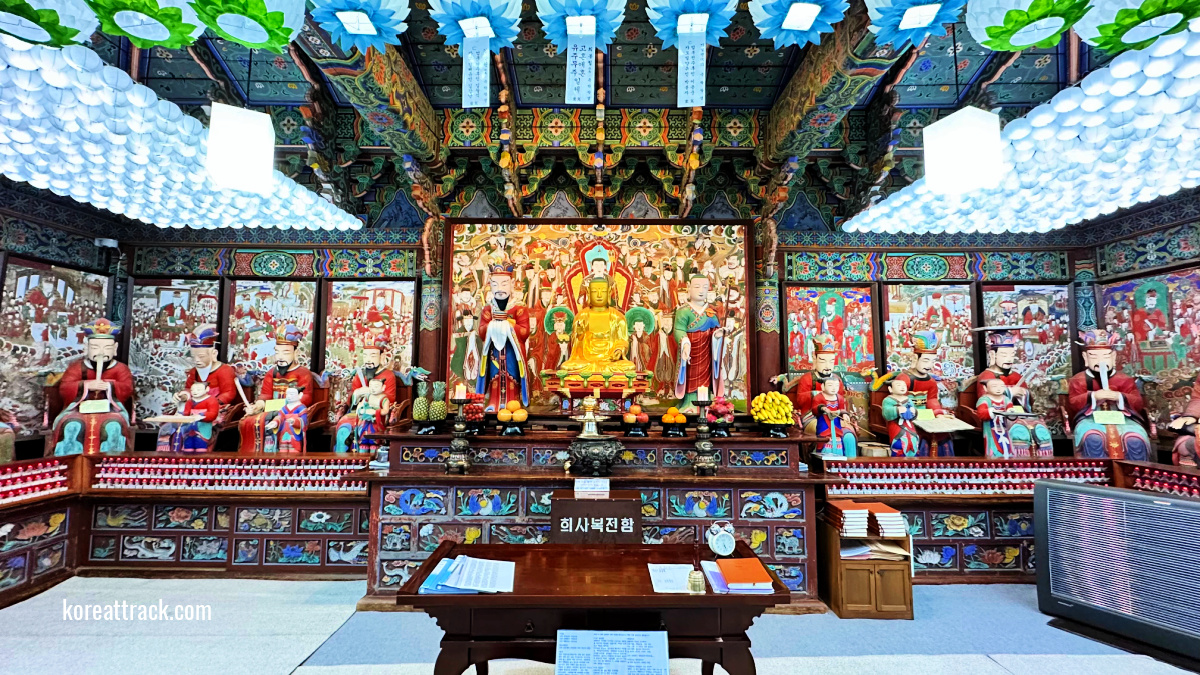 Jeondeungsa Temple - Myeongbojeon Altar
Jeondeungsa Temple - Myeongbojeon Altar Jeondeungsa Temple - Paintings about Buddhism at the back of Myeongbojeon Hall
Jeondeungsa Temple - Paintings about Buddhism at the back of Myeongbojeon HallJeondeungsa Temple on Ganghwa Island is not just a temple; it holds immense historical significance. It played a crucial role in maintaining authentic records of the Joseon Dynasty.
Initially, the archives were located at Mt. Manisan, but they were transferred to Jeondeungsa in 1660. This move helped preserve the valuable history of the Joseon dynasty for future generations.
During the Byeongin-Yang-yo conflict in 1866, 50 brave Buddhist priests from Jeondeungsa took up arms and participated in the struggle. Their courage and bravery earned the temple a reputation as a defender of the nation.
National Treasure No. 393: Jeondeungsa Bell
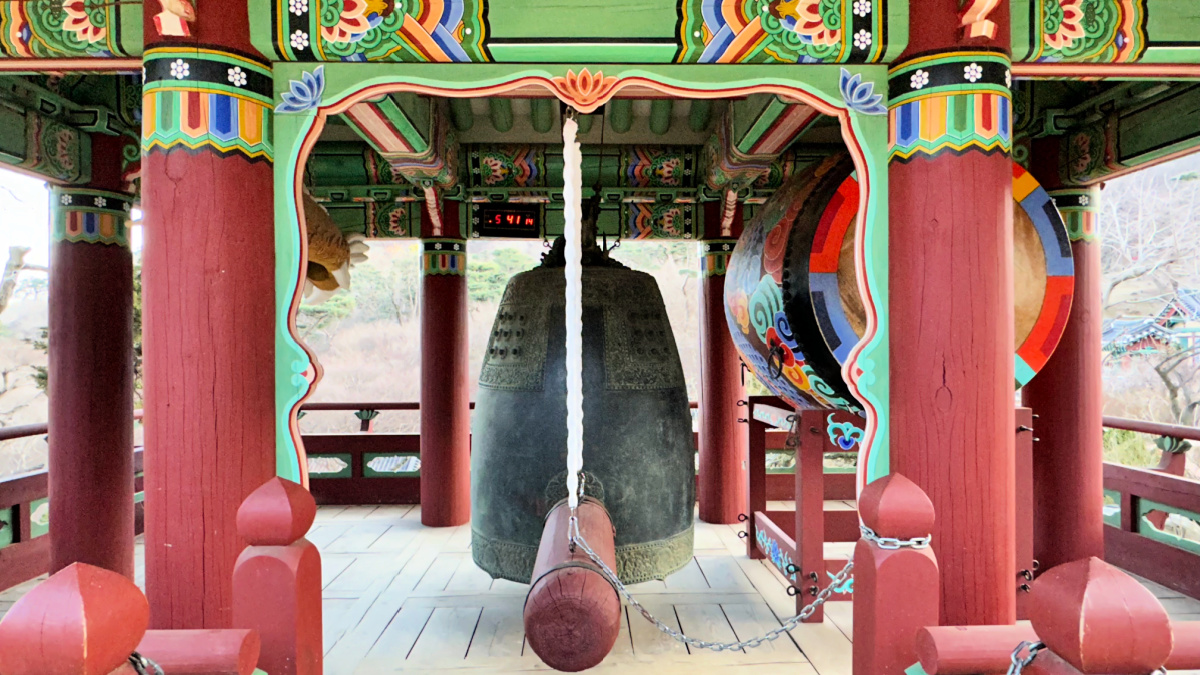 Jeondeungsa Temple - Bell #393 is believed to have been crafted in China in 1097
Jeondeungsa Temple - Bell #393 is believed to have been crafted in China in 1097The temple precinct is home to a precious national treasure, the No. 393 bell, which has a remarkable history. It was crafted in 1097 at Sungmyeongsa Temple in the "North Song" of China.
This bell stands out from other Korean bells due to its unique features. One of the most notable differences is the absence of a sound-vibrating device at the top.
The bell also boasts an intricate design with 16 petals of lotus flowers around its dragon neck. The surface between the bell's shoulder belt and waist belt is embellished with eight divination signs representing the concept of the oriental universe. These signs make the bell even more special and add to its significance.
Tranquil Location
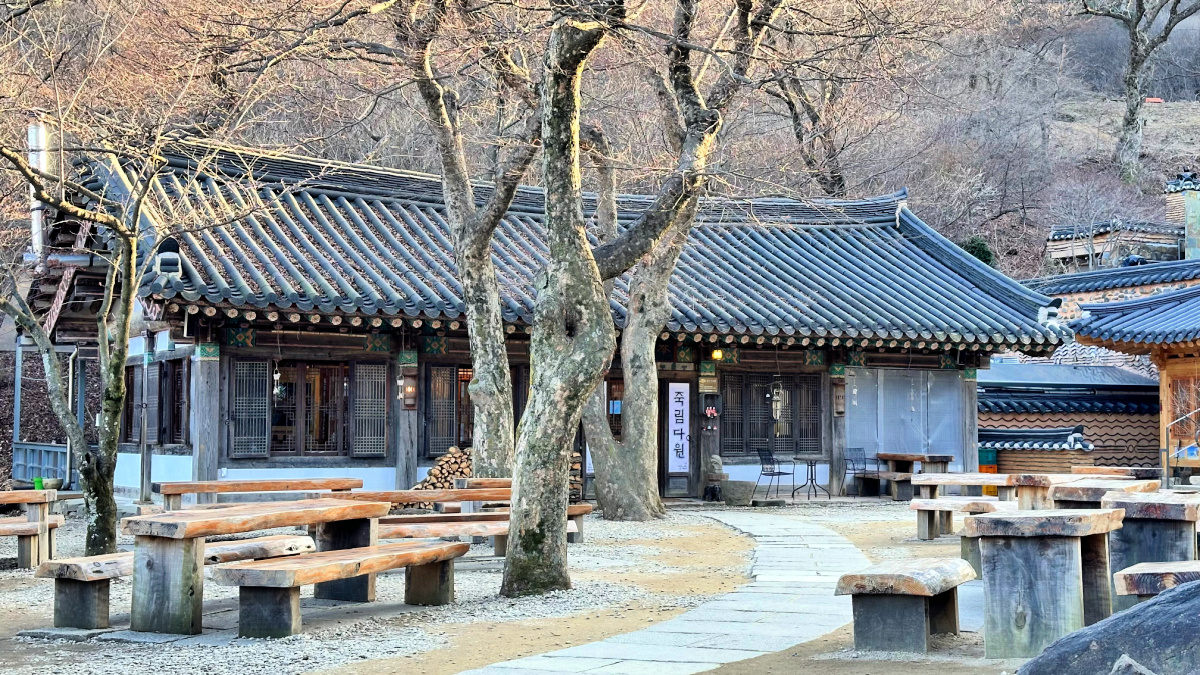 Sitting area for the restaurant inside the Jeondeungsa. You can find a pond, the Little Prince sculpture, the washrooms, and great views around...
Sitting area for the restaurant inside the Jeondeungsa. You can find a pond, the Little Prince sculpture, the washrooms, and great views around...Nestled on the picturesque Jeongjoksan, a majestic 220-meter mountain surrounded by the Samnang Fortress, lies the breathtaking Jeondeungsa.
Despite its proximity to the bustling city of Seoul, this charming destination offers a peaceful oasis and a captivating insight into Korea's rich cultural heritage.
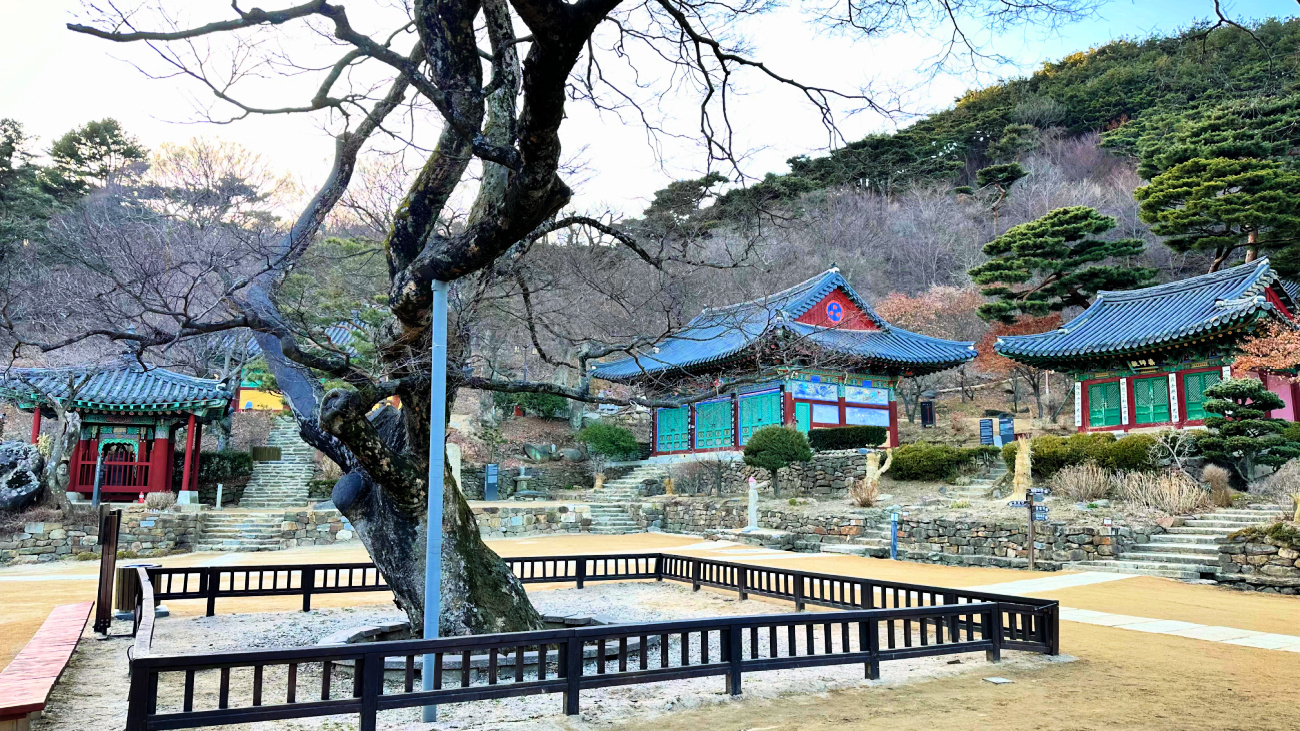 Jeondeungsa Temple - Old tree
Jeondeungsa Temple - Old treeI also noticed that Ganghwado is expanding its island-development projects. You could see more buildings and constructions all around. It is not the place I saw before. But still, there are lots of serene and beautiful places to enjoy.
Whether you are seeking a tranquil retreat or a historical adventure, Jeondeungsa is a must-visit destination that promises to enchant you.
For more information, you can visit the official website. 🏯🌿
- https://www.jeondeungsa.org/
- https://www.ganghwa.go.kr/open_content/english/culture/ganghwa.jsp
- https://www.kpopmap.com/travel/ganghwa-jeondeungsa-temple-%ec%a0%84%eb%93%b1%ec%82%ac-%ea%b0%95%ed%99%94/
- https://bing.com/search?q=Jeondeongsa+temple+Ganghwado
- https://en.wikipedia.org/wiki/Jeondeungsa
- https://www.koreaherald.com/view.php?ud=20220804000719
Templestay Program
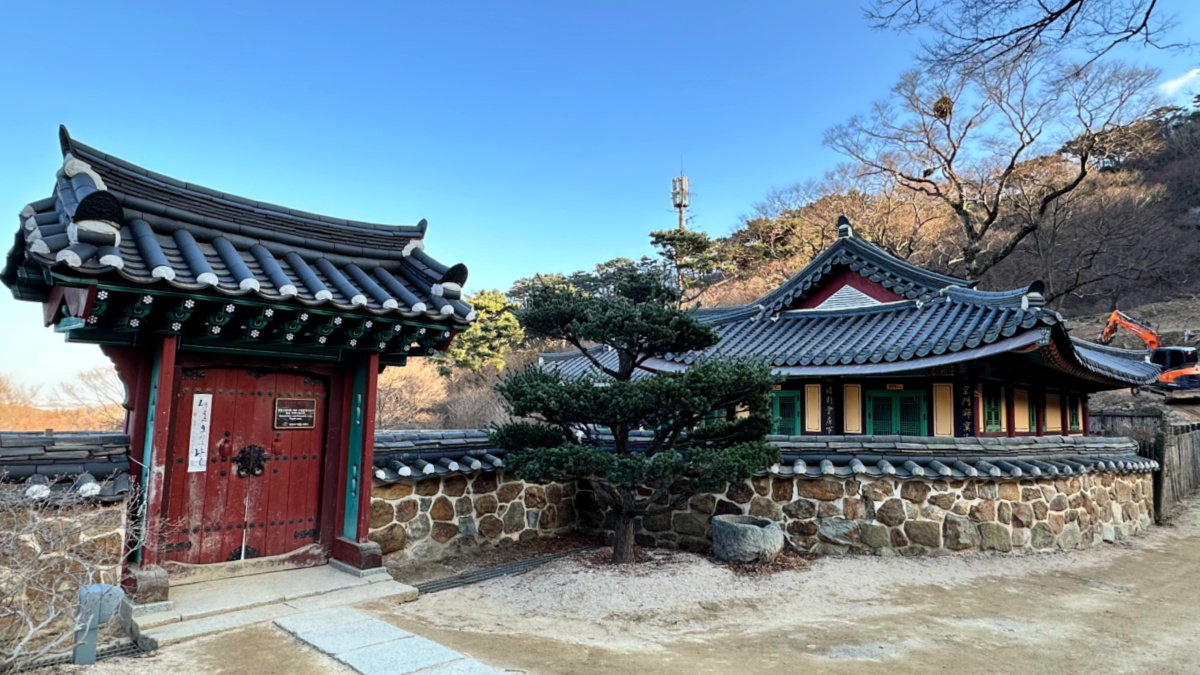 Jeondeungsa Templestay Building
Jeondeungsa Templestay BuildingJeondeungsa Temple, located within Jeongjoksanseong Fortress in Gilsang-myeon, Ganghwa-gun, Incheon-si, holds temple stay programs. The program entails learning temple etiquette, performing zen meditation, interacting with a monk, and doing chores together.
Utilization Information
Both adults and children can participate, but elementary school students require adult supervision.
Admission fees:
1. Life Experience-type Temple Stay:
- Adults: 60,000 won
- Elementary/Middle/High school students: 40,000 won (Students must be accompanied by their parents or guardians.)
2. Relaxation-type Temple Stay (2 days, 1 night)
- Adults: 40,000 won (additional 1 night)
- Adults: 30,000 won
- Elementary/Middle/High school students: 20,000 won
- Note that the prices are subject to change.
- Restrooms: Restrooms are available on the premises.
- Facilities for people with disabilities: The temple has restrooms and a wheelchair ramp for people with disabilities.
For Further Information
- 1330 Travel Hotline: +82-2-1330, which is available in Korean, English, Japanese, and Chinese.
- Contact +82-32-937-0125 or Temple Stay Office at +82-32-937-0152 in Korean for more details.
- Parking fees: Small cars: 2,000 won / Full-size cars: 4,000 won.
Getting to Jeondeungsa Temple
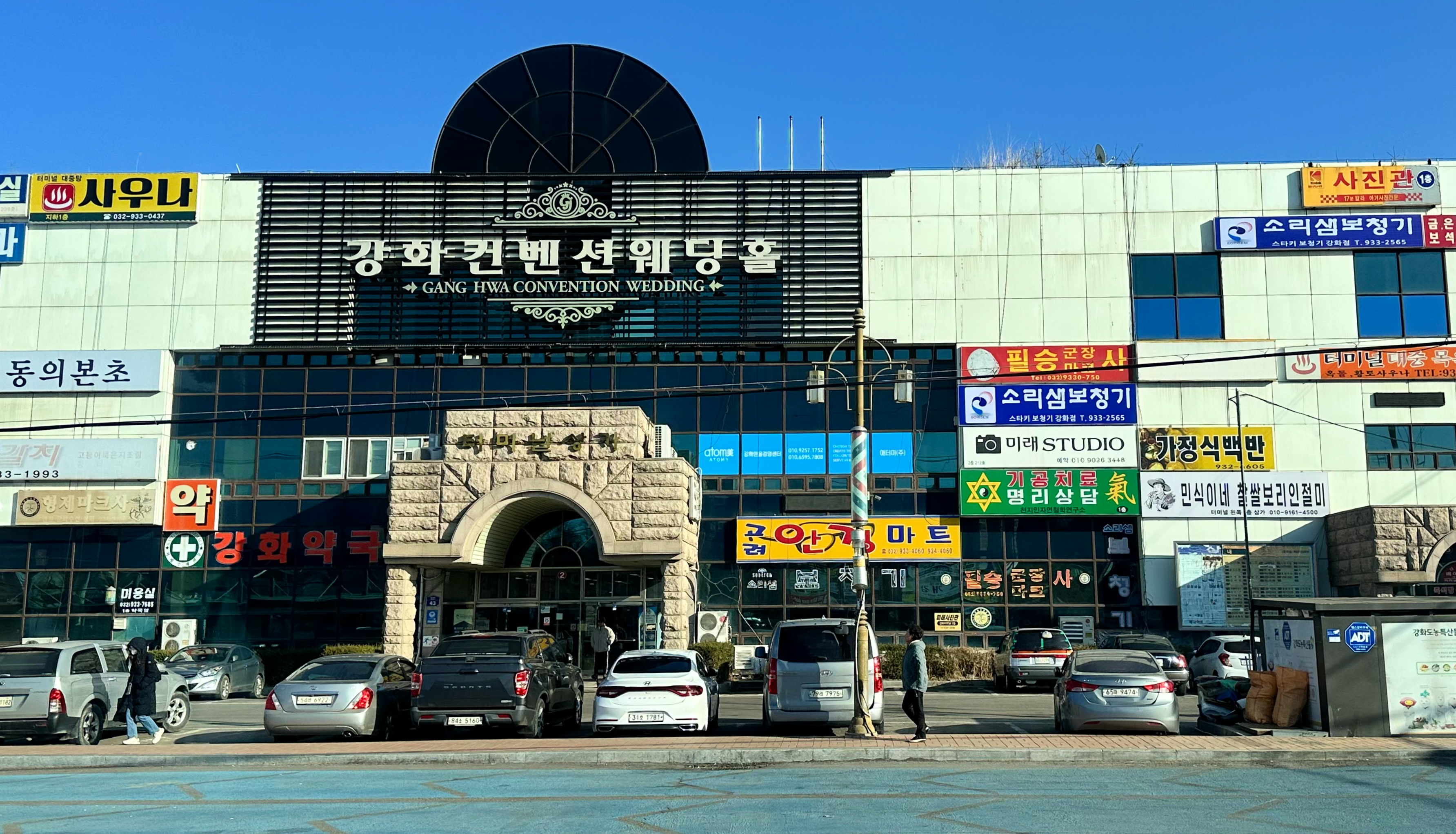 Ganghwado Bus Terminal (waiting area and buses at the opposite side of the building)
Ganghwado Bus Terminal (waiting area and buses at the opposite side of the building)You can get to Jeondeungsa Temple on Ganghwa Island, either by public transport or private vehicle. By public transport, you need to take the Seoul subway line, or by bus depending you your point of origin or location.
If you take the bus from Seoul or anywhere outside of Ganghwa Island, you need to get to Ganghwa Bus Terminal first, then transfer to another bus for Jeondeungsa Temple at the terminal.
Take bus: 3, 51, 53, 58, 59, 60, etc. These buses stops nearby Jeondeungsa's main parking area. Head towards that direction and start ascending through the steps between the shops and eateries.
By Subway and Bus From Seoul (Sincheon Station)
To reach Jeondeungsa Temple Rear Gate (전등사후문), you can take Bus No. 3100 from Shincheon Station (Seoul Subway Line 2), Exit 4. Once you board the bus, get off at the Jeondeungsa Temple Rear Gate (전등사후문) bus stop.
From there, turn left at the sign for Jeondeungsa Temple Nammun (전등사남문입구) and continue walking for about 200m to reach your destination.
Jeondeungsa Temple Address
37-41, Jeondeungsa-ro, Ganghwa-gun, Gilsang-myeon, Incheon City (인천광역시 강화군 길상면 전등사로 37-41)
Operating hours:
- Summer 08:00-18:30
- Winter 08:30-18:00
- Holiday: N/A (Open all year round)
Parking Area: It is available by the road side. Another parking area is available closer to the temple area
Website: https://www.jeondeungsa.org or https://www.templestay.com
- Home
- Temples in South Korea
- Jeondeungsa Temple on Ganghwado
Get Exciting Activities
Book one of our exciting activities today to experience the thrill of a lifetime! Take advantage of this opportunity and secure your spot in advance.
Hotel Map Guide
Find your affordable, accessible, and comfortable hotel in Seoul at Agoda.Com. See the hotel map below...
Hotel Booking Guide
Find affordable and amazing hotels on Agoda.com using the search box below. Book now to enjoy great discounts and save!
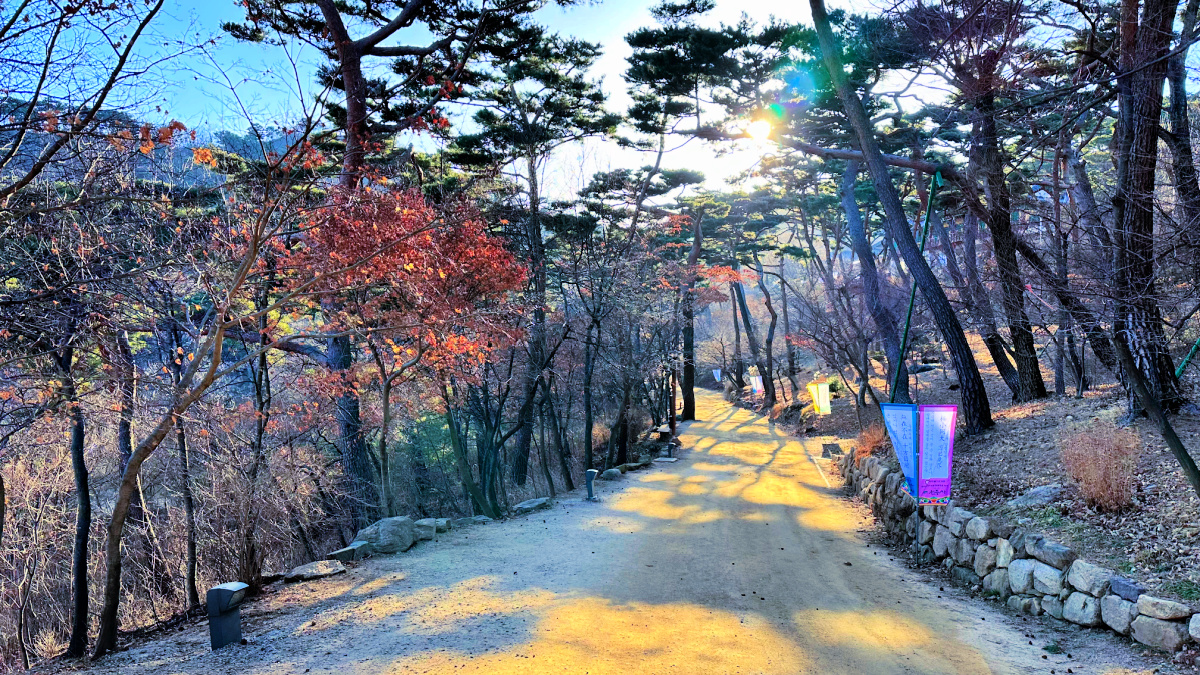
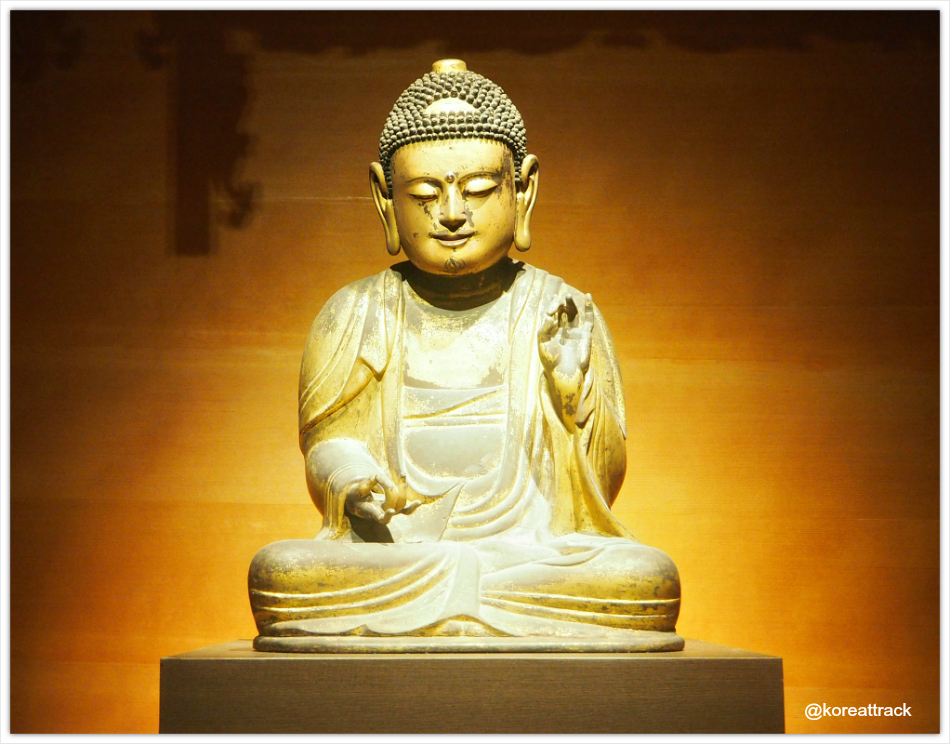
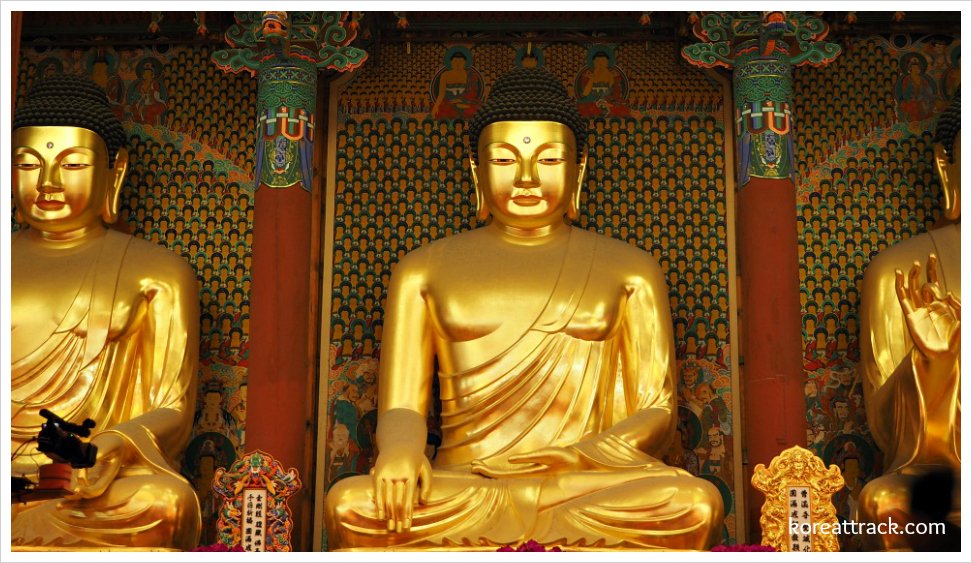
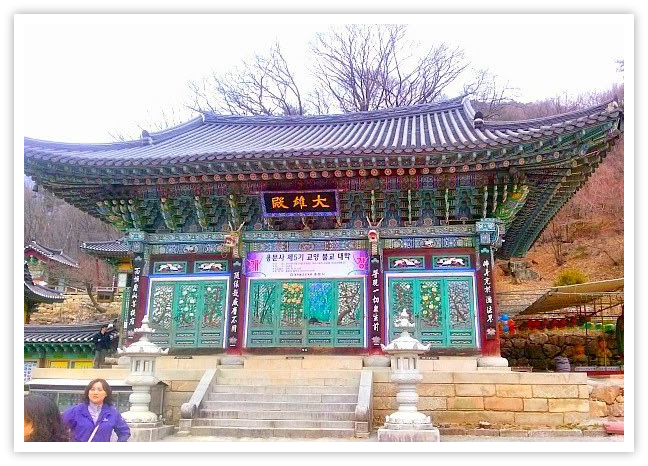




New! Comments
What do you think about this page? Leave me a comment in the box below.